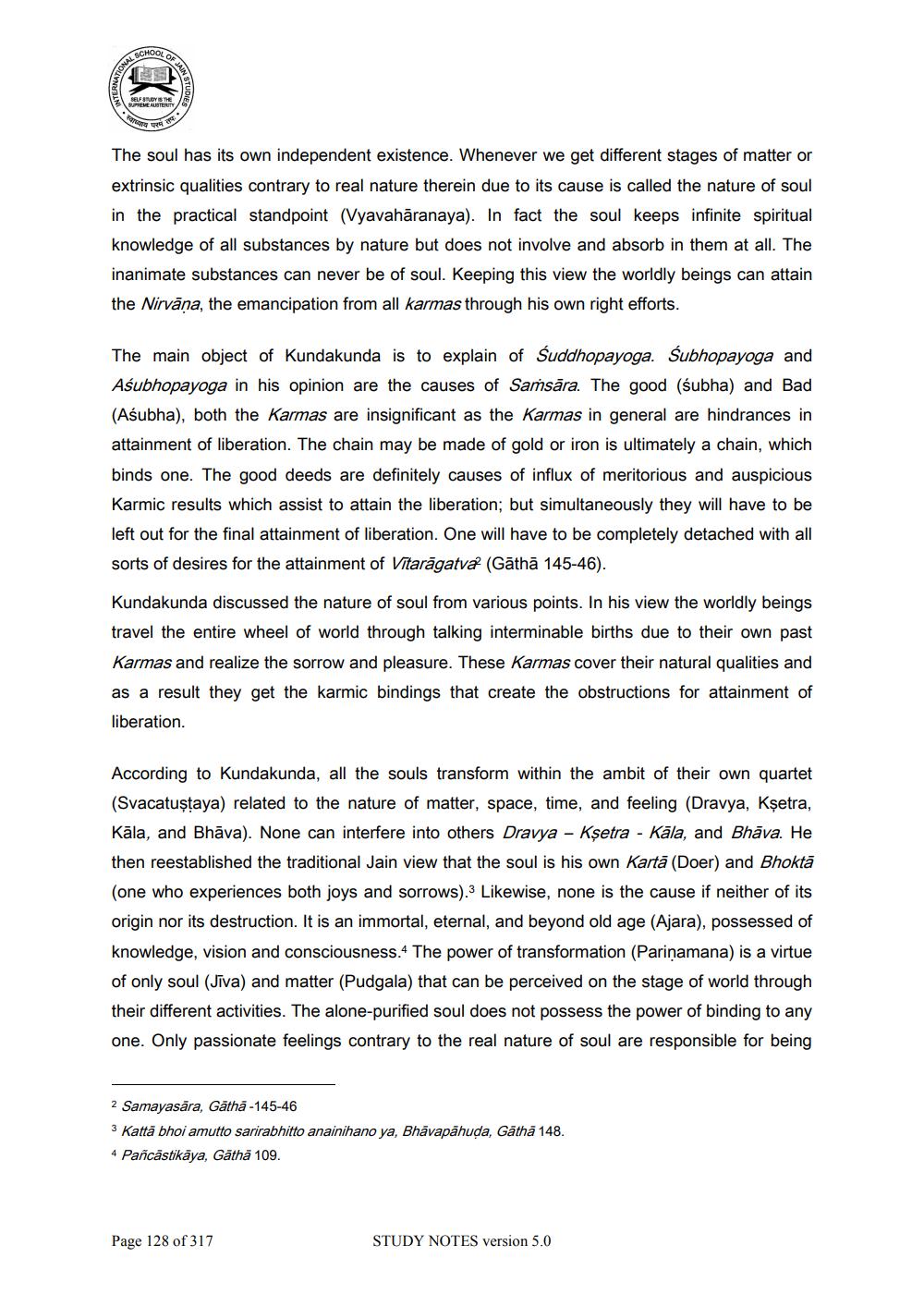________________
The soul has its own independent existence. Whenever we get different stages of matter or extrinsic qualities contrary to real nature therein due to its cause is called the nature of soul in the practical standpoint (Vyavahāranaya). In fact the soul keeps infinite spiritual knowledge of all substances by nature but does not involve and absorb in them at all. The inanimate substances can never be of soul. Keeping this view the worldly beings can attain the Nirvana, the emancipation from all karmas through his own right efforts.
The main object of Kundakunda is to explain of Suddhopayoga. Subhopayoga and Aśubhopayoga in his opinion are the causes of Saṁsāra. The good (śubha) and Bad (Aśubha), both the Karmas are insignificant as the Karmas in general are hindrances in attainment of liberation. The chain may be made of gold or iron is ultimately a chain, which binds one. The good deeds are definitely causes of influx of meritorious and auspicious Karmic results which assist to attain the liberation; but simultaneously they will have to be left out for the final attainment of liberation. One will have to be completely detached with all sorts of desires for the attainment of Vītarāgatva (Gathā 145-46).
Kundakunda discussed the nature of soul from various points. In his view the worldly beings travel the entire wheel of world through talking interminable births due to their own past Karmas and realize the sorrow and pleasure. These Karmas cover their natural qualities and as a result they get the karmic bindings that create the obstructions for attainment of liberation.
According to Kundakunda, all the souls transform within the ambit of their own quartet (Svacatuştaya) related to the nature of matter, space, time, and feeling (Dravya, Kșetra, Kāla, and Bhāva). None can interfere into others Dravya - Kșetra - Kāla, and Bhāva. He then reestablished the traditional Jain view that the soul is his own Kartā (Doer) and Bhoktā (one who experiences both joys and sorrows). Likewise, none is the cause if neither of its origin nor its destruction. It is an immortal, eternal, and beyond old age (Ajara), possessed of knowledge, vision and consciousness. The power of transformation (Parinamana) is a virtue of only soul (Jiva) and matter (Pudgala) that can be perceived on the stage of world through their different activities. The alone-purified soul does not possess the power of binding to any one. Only passionate feelings contrary to the real nature of soul are responsible for being
2 Samayasara, Gatha -145-46 3 Katta bhoi amutto sarirabhitto anainihano ya, Bhavapāhuda, Gatha 148. 4 Pañcāstikāya, Gathā 109.
Page 128 of 317
STUDY NOTES version 5.0




